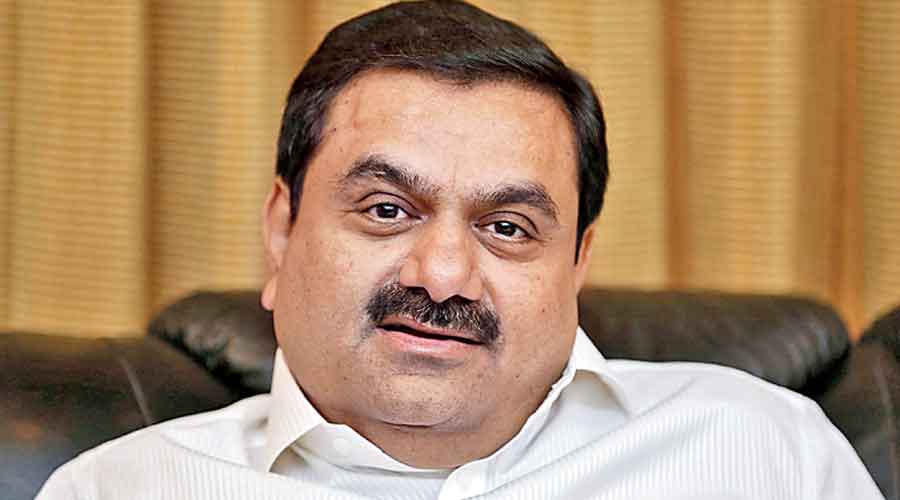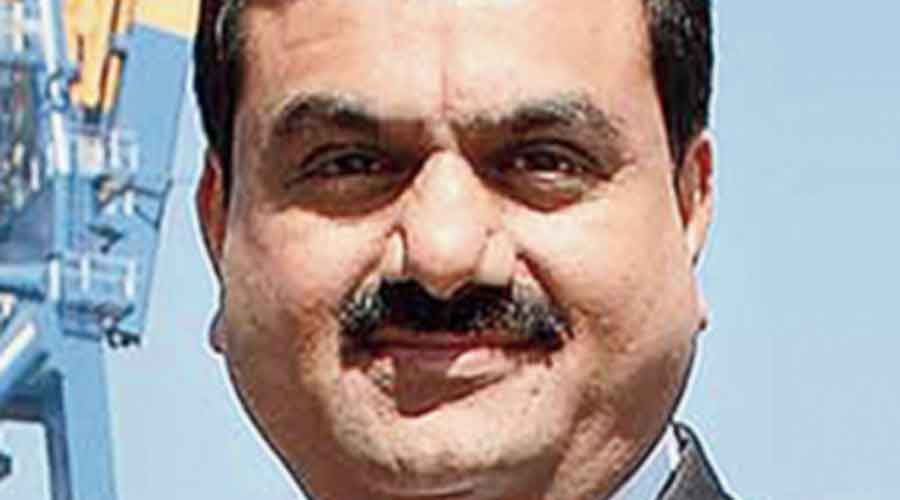The Adani Group is at the centre of a bitter row in Sri Lanka about Government plans to drop the need for competitive bidding when awarding power contracts.
The Central Electricity Board Engineers’ Union, representing engineers of the state-run Ceylon Electricity Board, the country’s biggest power company, and the Opposition have accused the Government of attempting to drop competitive bidding to allow the Adani Group and others to enter Sri Lanka by “the back door.”
Arrangements in full swing
“Arrangements are being made at a rapid pace to gift the most prolific wind energy belt in the country,” to the Adani Group, the union said in a statement, referring to the bill to amend Sri Lanka’s electricity law.
The union demanded that the government “stop the handover of the country’s wind and solar resources to the Adani Group… without following the competitive bidding process.”
Sri Lankan power workers in Sri Lanka called off a nationwide strike against the government’s planned energy legislation Thursday following a last-minute decree by President Gotabaya Rajapaksa declaring electricity an essential service.
But wildcat walkouts were being reported during the day, causing power disruptions in the country which is reeling from its worst economic crisis since independence in 1948.
The union is planning to continue its protest campaign against the legislation that it says would end requirements for competitive bidding for renewable power projects and lead to the privatisation of the power sector. The end result of the legislation will be higher electricity bills for consumers, the union says.
The government’s legislation, which passed second reading in parliament on Thursday, is “aimed at cancelling the competitive bidding scheme, which exists to ensure the public get electricity at the lowest cost," said the union's joint secretary, Dhammika Wimalaratne.
The government says that the legislation amending the Sri Lanka Electricity Act is needed to allow “quick approval and implementation of long delayed renewable power projects.”
Chairman travels to Lanka
Last October, billionaire Gautam Adani travelled to Sri Lanka’s Northern Province to explore the possibility of investing in the country’s wind and renewable energy sector.
In March, the Adani Group signed a Memorandum of Understanding to set up two renewable energy projects in Mannar and Pooneryn, in Sri Lanka’s Northern Province.
The two renewable energy projects are aimed at generating combined capacity of 500 MW, at a cost of $500 million.
Sri Lanka’s current electricity law stipulates private plants must be acquired under competitive bidding.
The chairman of state-run Ceylon Electricity Board (CEB), M.M.C Ferdinando, defended the Adani deal, saying it came through the government, adding the group signed the pact with the Finance Ministry, the Board of Investment and the electricity board, Sri Lankan news portal EconomyNext reported.
Opposition airs protest
Opposition MP and economist Harsha de Silva said the agreement with the Adani Group violated Sri Lanka’s energy laws, especially the Sri Lanka Electricity (Amendment) Act of 2013 that requires competitive bidding for all electricity generation.
“The Mannar basin has one of the best energy yields. Giving it to an investor outside of a competitive process is a clear violation. We are talking about 500 MW in one of our best locations,” de Silva told The Hindu.
The Ceylon Electricity Board also in March struck a deal with the National Thermal Power Corp of India to establish a 100 MW power project in Sampur, in the eastern Trincomalee district.
Ajith Perera, chief executive of the Samagi Jana Balawegaya (SJB or the United People’s Force), Sri Lanka’s biggest opposition party, said Colombo has established a good track record on renewable energy development.
The country had created a “robust competitive system” to obtain the best value from private investments, Perera, a former state renewable and power minister added
Sri Lanka’s economic crisis has brought about a reset in relations with India which earlier had been cold-shouldered by Colombo in favour of China.
India has been giving considerable financial assistance to Sri Lanka which is close to bankruptcy with near-zero foreign exchange reserves and is battling severe shortages of food and fuel. It is and is seeking an IMF bailout. But Sri Lanka’s opposition and media say that New Delhi has been tying financial support to being granted strategic projects.
Prime Minister Narendra Modi “may have given us crucial financial assistance during our current economic crisis, but that doesn’t mean our renewable energy sector’s most valuable lands and resources can be stolen for his friend Adani,” said Perera.
'Adanis are welcome'
Perera added that a global player like Adani would be “most welcome” through proper channels.
Rajnith, of the union representing Ceylon Electricity Board engineers said the Advani Group at first proposed to sell power to the CEB at 6.50 US cents, EconomyNext reported. But “now attempts are being made to give the project for 7.55 US cents a unit,” he added. The tariff is right now at just under 30 Sri Lankan rupees a unit.
Former union president Saumya Kumarawadu said under competitive tendering a wind plant could be built to sell power at 4 cents a unit or below. “7.55 cents is about twice the price,” he said. “Over 25 years, that is about $4 billion.”
The chairman of the Ceylon Electricity Board said the tariff could be subject to further negotiation following a feasibility study,













